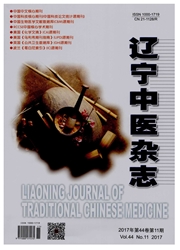

 中文摘要:
中文摘要:
癌性营养不良(CAM)是肿瘤患者的常见死因,其本质以脾气虚为主,晚期则见脾肾两虚。肿瘤诱导产生以慢性炎性反应和免疫抑制为主要特征的肿瘤免疫微环境,肿瘤细胞释放炎性因子、活性氧簇等至微环境,诱导骨骼肌、脂肪和间质细胞自噬,自噬释放的谷氨酰胺、酮体和乳酸则促进肿瘤细胞的线粒体氧化磷酸化功能。这种肿瘤组织主导的、肿瘤与肌肉等正常组织间的能量代谢重编程是脾虚CAM的内在本质,肌肉、脂肪等组织消耗则是其外在表现。肿瘤与正常组织通过自噬而形成的代谢偶联是CAM脾(肾)虚的重要病机,也是脾主肌肉四肢理论和健脾法内涵研究的新内容。
 英文摘要:
英文摘要:
Cancer associated malnutrition(CAM) is the common cause of death in patients with cancer. Pathogenesis of CAM in traditional Chinese medicine( TCM) is deficiency of spleen qi or even asthenia of both the spleen and the kidney in the advanced stages. Tumor could induce a micro-environment that characterized by chronic inl ammation and immunosuppression. Tumor cells release cytokines and reactive oxygen species(ROS) into the micro-environment, resulting in the autophagy of skeletal muscles, adipocytes and interstitial cells. Cancer cells use glutamate, ketone and lactate released by the autophagy to fuel oxidative mitochondrial metabolism in mitochondrion of tumor cells. The reprogramming of metabolism between tumor and some normal tissues, such as skeletal muscles, directed by tumor is the internal essence of deficiency of spleen. The consumption of muscles and adipose tissues is the external manifestation. The metabolic coupling through autophagy is pivotal for the formation of cachexia characterized by deficiency of spleen qi or even asthenia of both the spleen and the kidney in the advanced stages. It is a novel idea on the theory of spleen governing muscles and limbs, as well as a new connotation on the therapy of invigorating the spleen.
 同期刊论文项目
同期刊论文项目
 同项目期刊论文
同项目期刊论文
 期刊信息
期刊信息
